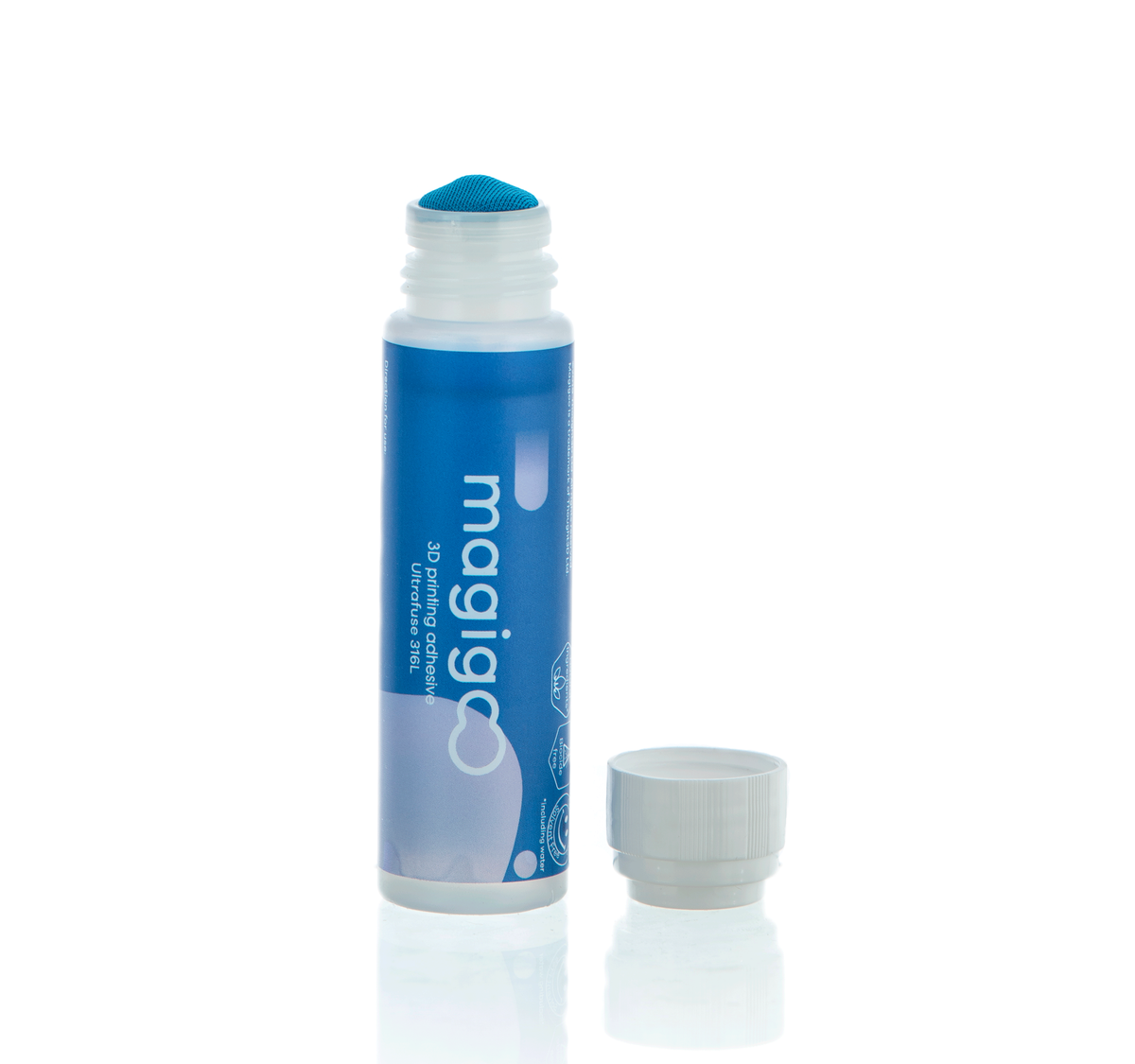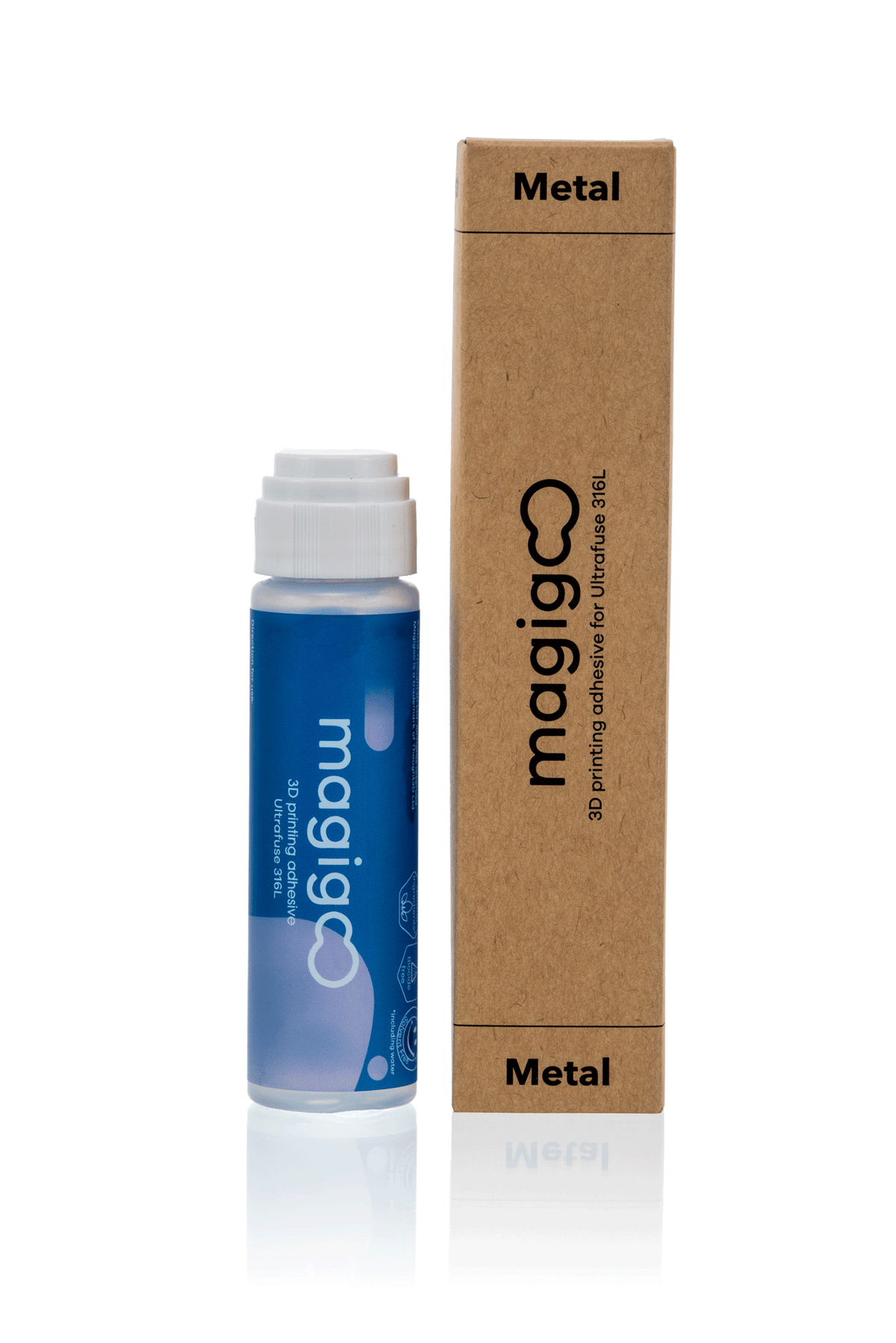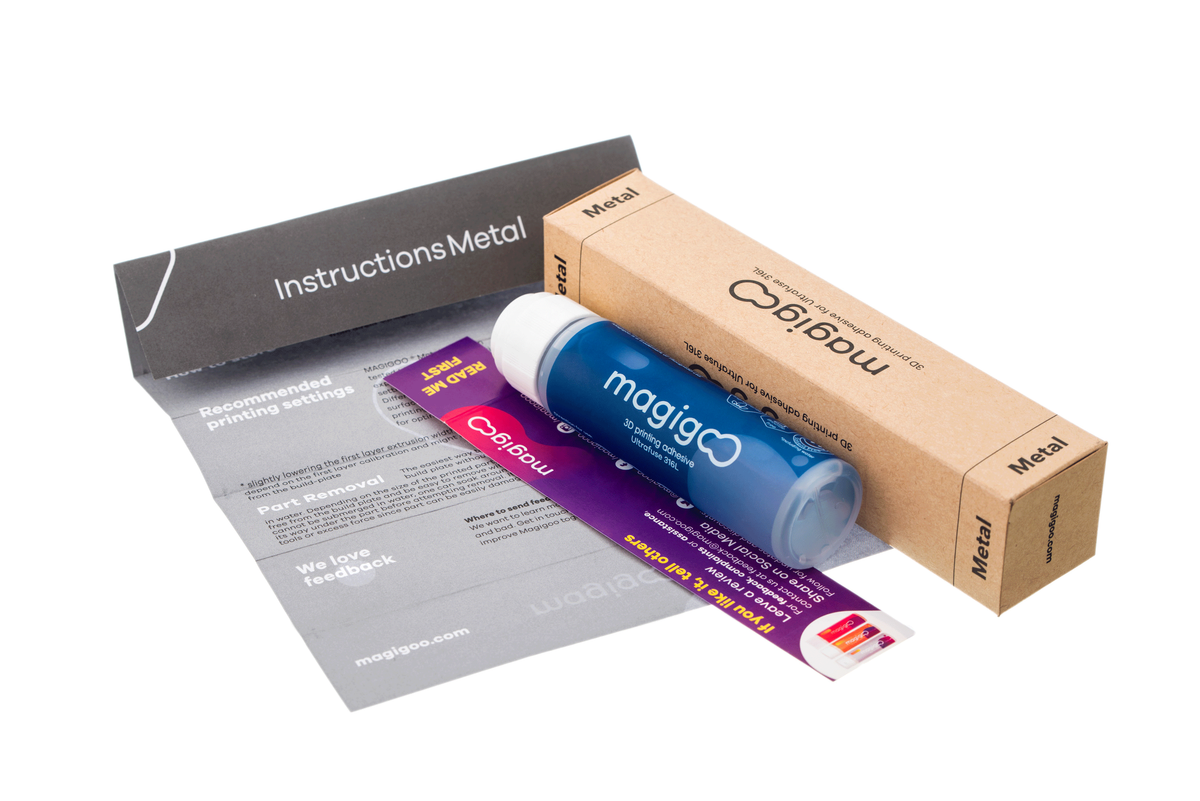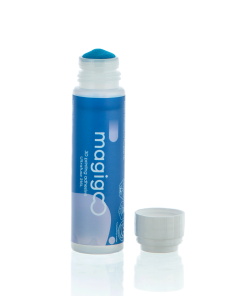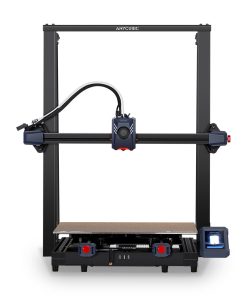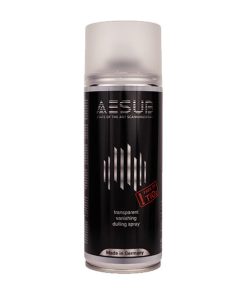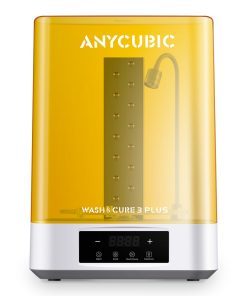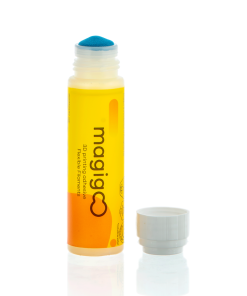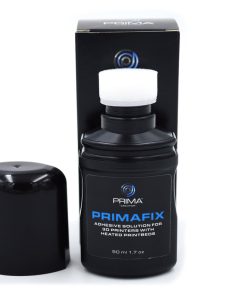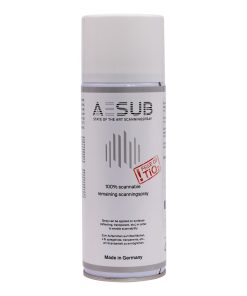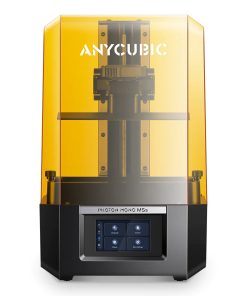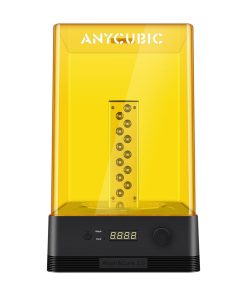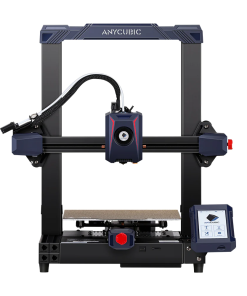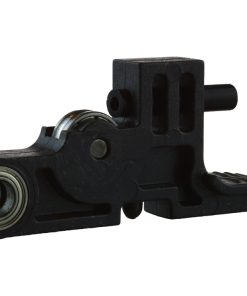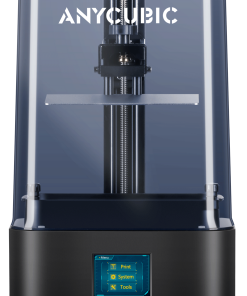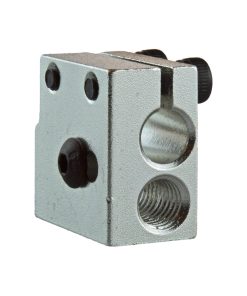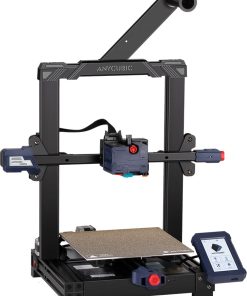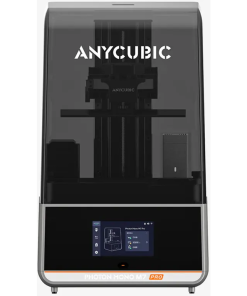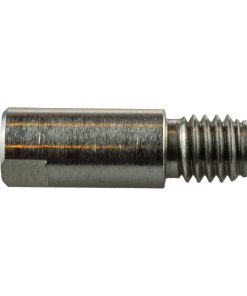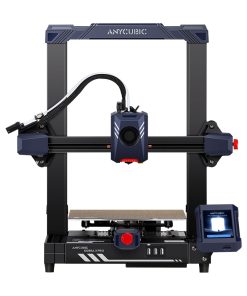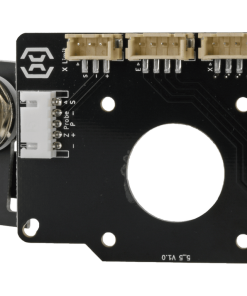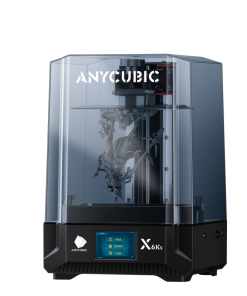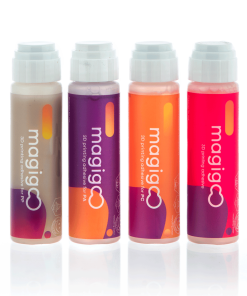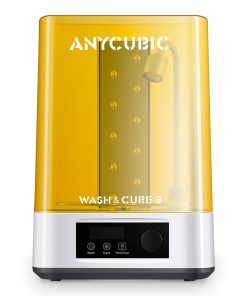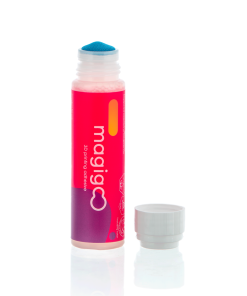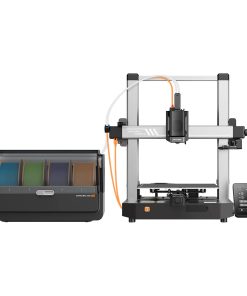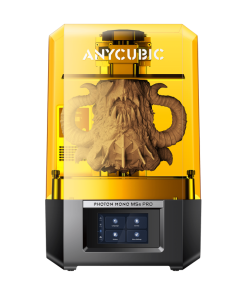Magigoo Pro Metal – The 3D Printing Adhesive Magigoo
$ 39,95 $ 23,97
WHY:
BASF Ultrafuse 316L enables the production of solid 316L-grade stainless steel parts through the use of desktop FDM 3D printers and a sintering process. Ultrafuse® 316L filament consists of highly-refined metal particles embedded in thermoplastic binders. Thus as a filament, the metal-polymer composite comes with none of the occupational and safety hazards associated with the handling of fine metallic powders. This enables affordable, straightforward, and safe3D printing of stainless-steel parts.
Due to the thermoplastic nature of the filament binding materials and the differential thermal cooling during FDM printing, parts printed BASF Ultrafuse® 316L are susceptible to warp. Furthermore due to the delicate nature of the green part, care must be taken when removing parts printed in BASF Ultrafuse® 316L to avoid part deformation. Magigoo Metal provides sure and reliable adhesion during printing and enable the easy removal of the printed part through submersion in water, thus avoid potential damage to the green part.
HOW:
For use of Magigoo Metal with BASF Ultrafuse® 316L a build-plate temperature of 95-105 °C is recommended, nonetheless, the printing conditions might vary between one printer and another.
- Shake the bottle.
- Apply to the desired area by pressing the nib on the bed (activating the inner valve) and spreading as needed.
- Print according to the filament/printer manufacturers recommendations
- After printing. Submerse the whole build plate in water or soak around the part with water. After short period of time – generally 30 minutes to 2 hours depending on the size of the part the part should come off on its own or be easy to remove with a gentle twist.
- Clean any residue – Use a damp cloth to wipe off.
SAFETY:
Using this product with other than BASF Ultrafuse 316L filaments might cause over adhesion and damage your build surface. Follow the instructions found in the technical data sheet for best results.
Fast Delivery and professional packaging
Our long-standing relationships with UPS FedEx DHL and other international carriers lets us offer various shipping options. Our warehouse personnel are well trained and will be able to pack the goods according to the exact and precise specifications. The goods you send us are checked thoroughly and securely secured prior to shipment. Everyday we deliver thousands of packages to customers across many countries. The fact that we're committed to becoming the biggest online retailer in the World is clear. The warehouses and centers of distribution are in Europe and the USA.
It is important to note that orders with more than one item will be subject to a processing period that is based to the specific item.
Prior to shipping Our team will conduct an extensive inspection of the items you purchased. The majority of orders today are shipped in 48 hours. The delivery time is between 3-7 days.
Returns
Due to multiple entities which include the factory as well as the warehouse, we're unable to completely manage our stock. Stock levels can fluctuate at any given time. It is possible that inventory could run out once your order has been processed.
Our policy is valid for 30 days. We are unable to return or exchange your purchase when it's been 30 days since you purchased it.
The item you purchase must be in its original packaging and be unused. The item must be in its original packaging.
Related products
3D Printers
3D Printers
Bed Adhesive
Bed Adhesive
3D scanners
3D Printers
3D Printers
3D scanners
3D Printers
3D Printer Parts & Spares
3D Printers
3D Printer Parts & Spares
85g Super Lube Multi-Purpose Synthetic Grease with Syncolon (PTFE) SuperLube
3D Printer Parts & Spares
3D scanners
3D Printers
Bed Adhesive
3D Printer Parts & Spares
3D Printers
Bed Adhesive
3D Printer Parts & Spares
Bed Adhesive
3D Printers
Bed Adhesive
3D Printer Parts & Spares
3D scanners
